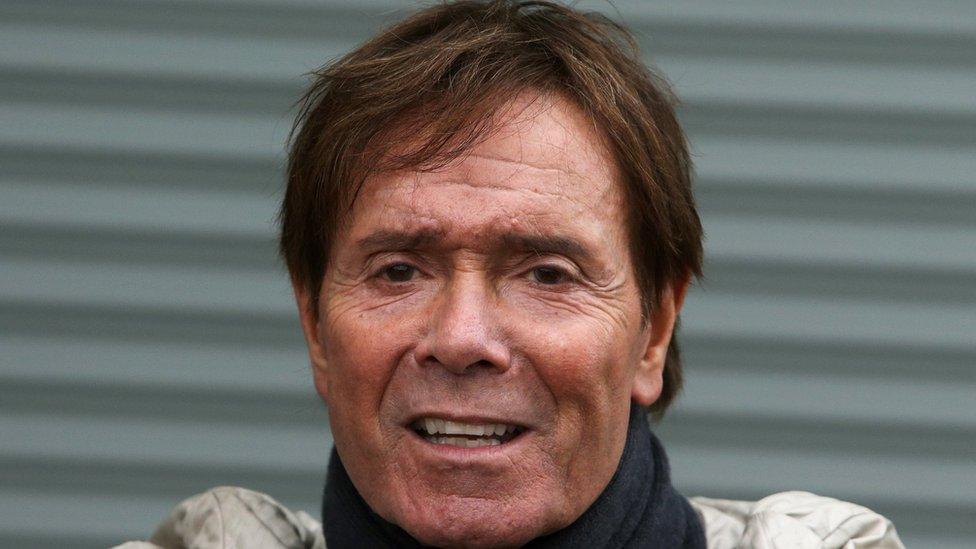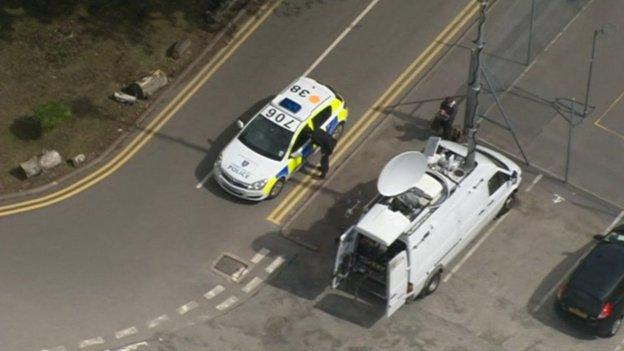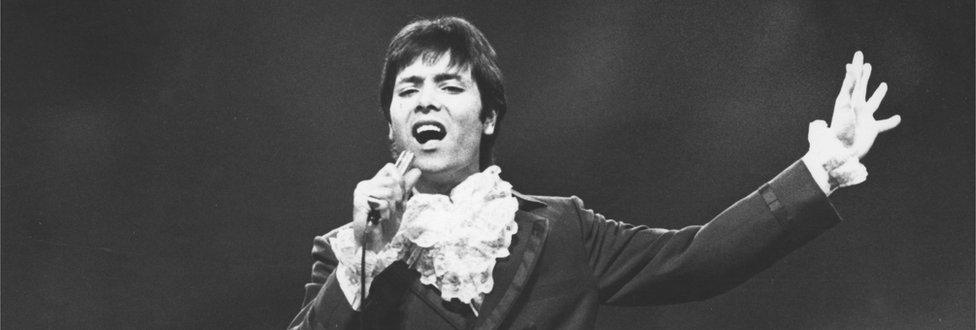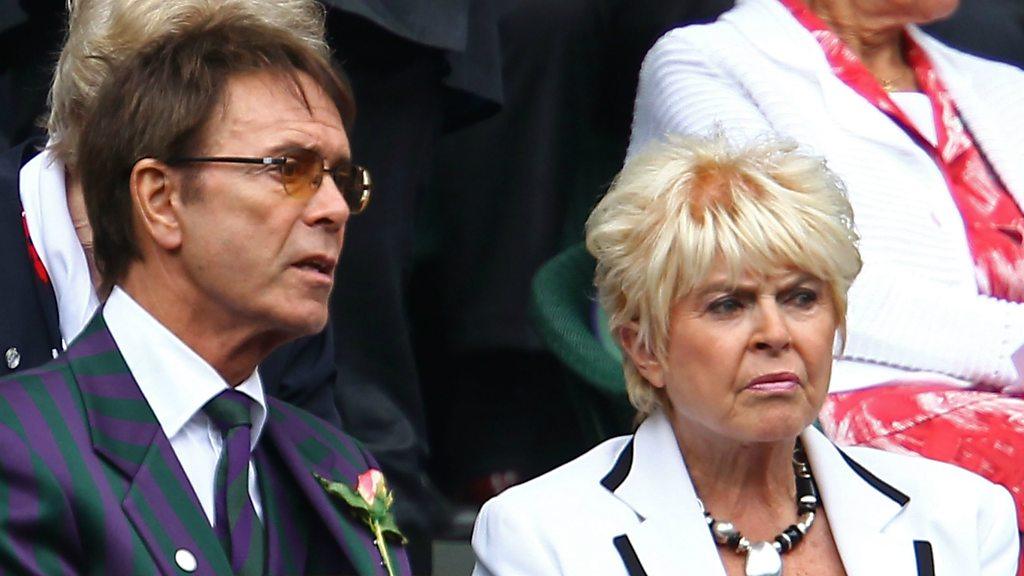Sir Cliff Richard sex abuse inquiry: No charges for singer
- Published

Singer Sir Cliff Richard will face no further action over allegations of historical sex abuse, prosecutors say.
The Crown Prosecution Service said it had decided there was "insufficient evidence to prosecute".
Sir Cliff said he was "obviously thrilled that the vile accusations and the resulting investigation have finally been brought to a close".
But he said his naming by the media, despite not being charged, meant he had been "hung out like live bait".
Four men claimed offences took place between 1958 and 1983, the CPS said.
It is understood that one of the complainants intends to use the Victims' Right to Review Scheme, external to appeal against the decision not to bring charges.
'Spurious claims'
In a statement, Sir Cliff said: "I have always maintained my innocence, co-operated fully with the investigation, and cannot understand why it has taken so long to get to this point."
He criticised the "high-profile fumbling of my case from day one".
"Other than in exceptional cases, people who are facing allegations should never be named publicly until charged," he said.
"I was named before I was even interviewed and for me that was like being hung out like 'live bait'.
"It is obvious that such strategies simply increase the risk of attracting spurious claims which not only tie up police resources and waste public funds, but they forever tarnish the reputations of innocent people."

Analysis

South Yorkshire Police gave the BBC details of the raid at Sir Cliff Richard's home
By Danny Shaw, BBC home affairs correspondent
Sir Cliff Richard's anger, mixed with relief, seeps from every line of his 366-word statement. The phrase "hung out like live bait" stands out - and it's designed to.
Sir Cliff wants to stop the reputations of other people being tarnished by publicity about allegations that haven't crossed the threshold for a prosecution, let alone been proven.
Although it's not police practice to identify suspects who haven't been charged - unless there are exceptional circumstances - names occasionally leak out and journalists sometimes discover the details through other routes.
A statutory ban on naming would put a stop to that. But would it allow sex offenders to get away with their crimes?
The concern is that if they hadn't been named in the media at an early stage, thereby emboldening other victims to come forward, some recently convicted celebrities would have got away with it.

Last year an independent investigation concluded that South Yorkshire Police should not have released "highly confidential" information to the BBC about a planned search of Sir Cliff Richard's home.
BBC film crews, including one in a helicopter, filmed the raid in August 2014.
In a statement, external, South Yorkshire Police apologised "wholeheartedly for the additional anxiety caused" to Sir Cliff by the force's "initial handling of the media interest" in its investigation.
The investigation is estimated to have cost "in the region of £800,000" including staffing costs, the force added.
"Non-recent allegations are, by their very nature, complex and difficult matters to investigate and can take a considerable amount of time," it said.
"We appreciate that waiting for a conclusion will undoubtedly have caused additional distress. However, it is in the interests of justice to investigate such matters thoroughly."

Sir Cliff profile

Born Harry Webb in Lucknow, India, in 1940, he spent the first eight years of his life in the country
Developed an interest in skiffle music before becoming influenced by the music of Elvis Presley
Had a record in each of the first six decades of the UK singles chart, starting in the 1950s
Third biggest-selling singles artist in UK chart history - behind Presley and The Beatles
Teamed up with backing band The Shadows and made films including The Young Ones and Summer Holiday
Came second in the Eurovision Song Contest with Congratulations in 1968. Finished third with Power To All Our Friends in 1973
Hits in the 1970s included Devil Woman and We Don't Talk Anymore
Had a number one single with a version of Living Doll for Comic Relief in 1986
Was knighted in 1995
Kept the tennis crowd entertained with a singalong at Wimbledon in 1996 during a rain break
Had his most-recent number one with The Millennium Prayer in 1999 but has continued to make music for his dedicated fanbase

'Serious questions'
Prosecutors received the full evidence file from police on 10 May, and BBC home affairs correspondent Danny Shaw said that meant the CPS had made its decision "quite quickly".
But he said the CPS had been working alongside the police for many months and there would now be "serious questions for the police about why this has taken so long".
He also said there would be "serious questions for the BBC in terms of its coverage".
Commenting on the claims against Sir Cliff, our correspondent said this "isn't necessarily the end of the matter", as the CPS maintains it must "keep every case under review" and every complainant has the right to a review of a decision not to bring charges - as one has said he will.
Responding to questions about the BBC's coverage, a BBC spokesman said: "We applied normal editorial judgements to a story that was covered widely by all media and have continued to report the investigation as it developed including the CPS's decision today - which is running prominently across our news output."
Gloria Hunniford says Sir Cliff has found the past two years "very difficult"
Conservative MP David Davis said Sir Cliff's case was "another high-profile arrest which resulted in no prosecution".
"It is time for a complete review of police procedures surrounding high-profile sex abuse cases, and the publicity surrounding these cases," he said.
"Whilst it is important to protect victims and maximise the chances of a successful prosecution, this must not result in the gratuitous destruction of people's reputation."
Broadcaster and campaigner Nick Ross agreed with Sir Cliff's comment that he was "hung out like live bait".
He said police faced an "impossible dilemma" trying to balance justice for victims with "trying not to have a witch hunt against people, some of whom are celebrities".
But he said police did not handle Sir Cliff's case correctly, both in terms of Sir Cliff's name being released and by taking "so long" over the investigation.
Comedian Jimmy Tarbuck said he had not expected the CPS to come to any other decision when it came to his friend.
Tarbuck was released without charge in 2014 after his arrest over allegations of historical child sex abuse.
He said: "I have known this man since we were 19 years of age, that's a long time, and I knew him then as a nice fellow.
"I can tell you so many things about him, he's a decent human being. And why keep him waiting all this long?"
- Published16 June 2016

- Published16 June 2016
